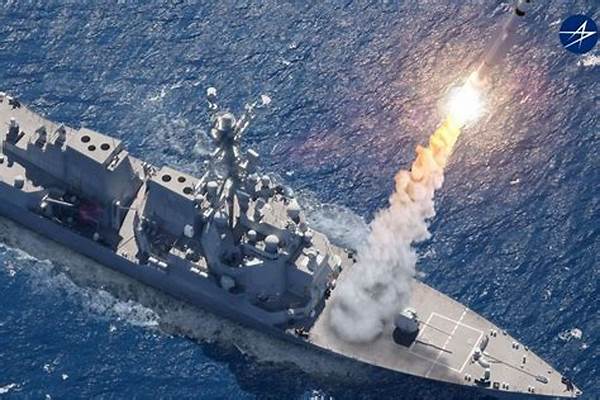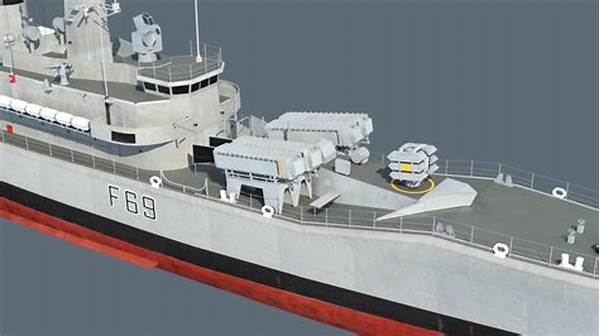Maritime networks play a crucial role in the global economy, facilitating the movement of goods and people across the world’s oceans. Given the importance of these networks, it is essential to develop resilience strategies that can withstand disruptions and ensure uninterrupted operations. Strategies revolve around safeguarding maritime activities from adversities like piracy, cyber-attacks, or natural disasters. This article delves into the various aspects of maritime network resilience strategies, exploring how they adapt and evolve to meet the challenges of an ever-changing global environment.
Understanding Maritime Network Resilience Strategies
Maritime network resilience strategies are all about keeping the ship sailing in stormy seas. It’s like giving the whole system a superpower to bounce back when hit by unexpected events. We’re talking cyber-attacks, heinous weather, or even those sneaky pirates. So, how do we keep the maritime operations ticking smoothly? Well, cracking the code often involves a mix of cutting-edge tech, savvy logistics planning, and an awareness that not everything goes to plan, matey. With these strategies, the whole network becomes like one of those old-school, unsinkable treasure ships. Investing in top-tier cybersecurity systems, conducting regular drills, and continuously updating the network infrastructure are the cool moves. But it ain’t just about stopping disasters – it’s about bouncing back faster and stronger when things do go downhill.
Unpacking Key Aspects
1. Tech Gurus Unite: Maritime network resilience strategies are like having geeks on speed dial. They show up with gadgets, fix stuff before it blows up.
2. The Weather Wizards: Predict the storm, sail strong. Weather warriors decipher Mother Nature’s plans, ensuring ships dodge hurricanes.
3. Pirate Punchers: Forget Jack Sparrow; these tactics outsmart real-life bullies. Strategy ninjas protect against thefts on grand seas.
4. Cyber Fortress Savvy: Maritime network resilience strategies build digital fortresses tougher than any castle, repelling cyber invaders.
5. On-the-Fly Fixers: Adapt, improvise, overcome. These strategies swap problems for solutions before anyone yells “Mayday!”
The Importance of Resilience Strategies
You’ve got to hand it to maritime network resilience strategies—they’re like the ultimate survival kit for the seas. Imagine navigating a massive floating city’s logistics without a hitch. These strategies are lifelines, proving essential when the voyage gets rocky. Ships today aren’t just floating pieces of metal; they’re digital hubs connecting global commerce. If one part falters, the ripple effects can disrupt entire supply chains. So, slapping on some resilience isn’t just a smart move—it’s essential. It’s like knowing parkour in an office; you never know when you might need to dodge an obstacle.
Building Resilient Pathways at Sea
Navigating Uncertain Waters
With all this talk on ships and storms, you’d think these resilience strategies were calm seas cruising. But the reality? Sea life’s unpredictable. Maritime network resilience strategies are the playbook for when things go sideways. Picture this: a calm day, when whoosh!—you’re amidst a typhoon or hacked systems. The strategy keeps you afloat no matter what. Staying steady in this non-stop pirate action reel isn’t for everyone—it’s like chess on shifting sands. But with these resilience strategies backing you up, you’re the captain who never abandons ship, ensuring smooth sailing even when Poseidon’s having a bad day. That’s not just survival; it’s thriving against odds.
Charting the Course for Resilience
In this grand sea adventure, maritime network resilience strategies are the star maps and all the heroics rolled into one. They’re not just about keeping afloat when the waves get high but turning challenges into stepping stones. Lost a mast to a storm? These strategies help you craft sails with your own wits. Each glitch or shiver in the hull becomes an opportunity seized. Security becomes second nature, and the strategies make sure nothing crashes the party—be it code glitches or some ill-willed marauder. Sailors equipped with this know-how become part-seer, part-warrior, plotting a course that anticipates, adapts, and outsmarts. On these adventurous seas, resilience isn’t just a fancy tactic; it’s what you live by every nautical mile.




